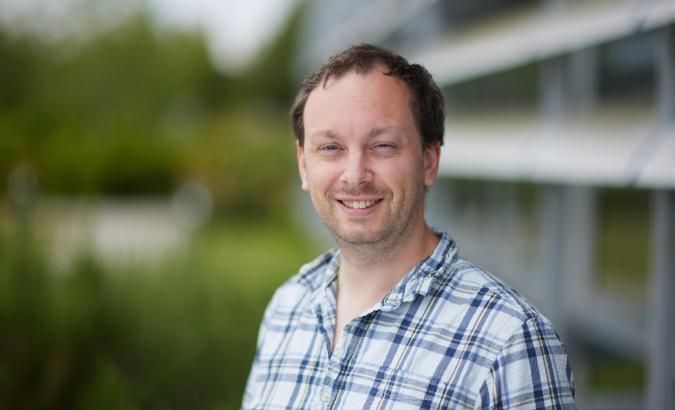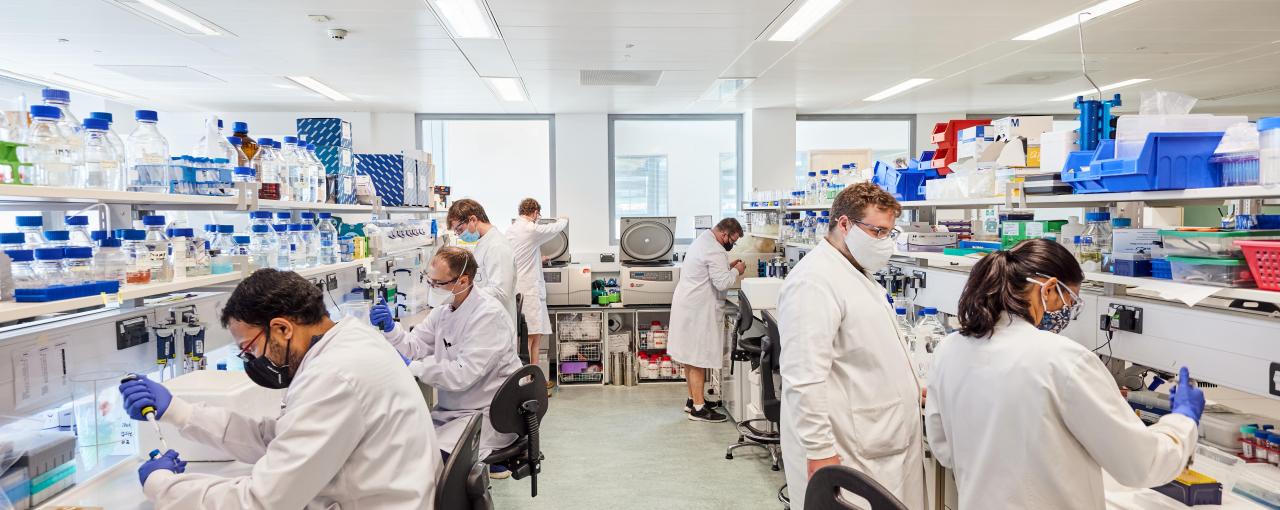The Membrane Protein Laboratory (MPL), led by Dr. Andrew Quigley at Diamond Light Source and located at Research Complex at Harwell, has won 1.5M of Wellcome Trust funding to support their research for a further five years. The MPL is one of Diamond's integrated user facilities, whose focus is to understand the structure of membrane proteins through delivering high quality samples to Diamond's beamlines and microscopes. This new funding will enable wider sample support to other Diamond beamlines and microscopes and form a foundation for integrative membrane protein structural biology.
Membrane protein structures are of crucial importance for medicine. Structural data can inform design, optimisation and engineering of selectivity in order to improve the overall efficiency of drug discovery. Many major questions remain unresolved; these include the signal transduction mechanism of receptors, the gating mechanisms of ion channels and the molecular transport mechanism of transporters.
The MPL is now a well-established cutting edge biomedical resource centre, providing support to an already large, and still growing, number of users from the UK and overseas, and is part of the Research Complex's unique facilities on the world stage that adds significant value to the UK and the international scientific communities that are studying membrane proteins. Since inception, the MPL has supported well over 200 applications from all around the world to use its facilities and has contributed to over 40 atomic resolution structures of membrane proteins.
The close proximity between Research Complex at Harwell, where the MPL is based, and Diamond has resulted in excellent working relations and synergies. This has alleviated problems in crystal transport, sample optimisation for cryo electron microscopy and has facilitated a quick turnaround between design of an experiment and its execution.
The Rosalind Franklin Institute, also located at Harwell, will support the MPL through its Protein Production UK (PPUK) project, led by Professor Ray Owens, which originated at Research Complex. This includes access to the Franklin’s nanobody platform, providing nanobodies and protein tools for stabilizing membrane proteins.
Dr. Quigley says:
The equipment and the bench space that we have here at Research Complex helps to ensure that we obtain the very best samples to use on beamlines and microscopes. The powerful collaborations we have with Diamond and the Franklin and the expertise on site will continue to drive integrative structural biology.
All MPL equipment and methodologies are available to scientists at Research Complex, visitors and collaborators and we have dedicated research scientists available to support all users of our facilities. Applications through the MPL website, please contact Dr. Andrew Quigley (andrew.quigley@diamond.ac.uk).
To find out more about Research Complex and to discuss potential applications, please contact our Head of Scientific Support, Dr. Zuzanna Lalanne (zuzanna.lalanne@rc-harwell.ac.uk).
Image copyright of Research Complex at Harwell. Photographer: David Fisher, Fisher Studios.



